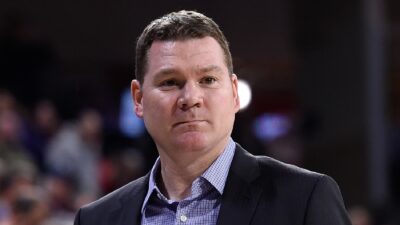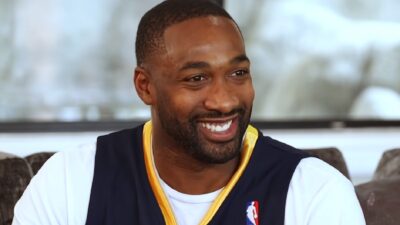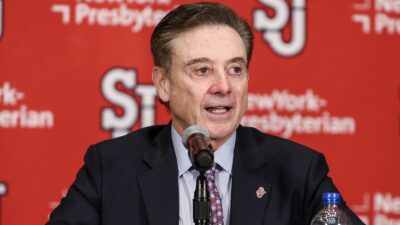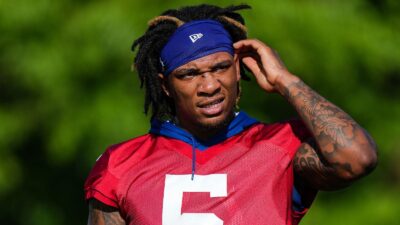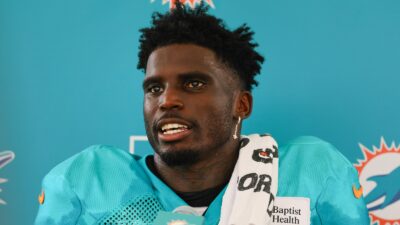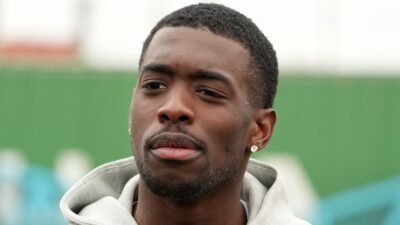LBS attended a screening of The Wooden Effect Saturday, a documentary with never-before-seen interviews of John Wooden produced by former Bruin Marques Johnson’s Point Forward Productions. Several former Bruins were in attendance for the event, which also doubled as a scholarship fundraiser for the UCLA Black Alumni Association. We spoke with 1995 national champion and John R. Wooden Award winner Ed O’Bannon at the event.
We talked with Ed about his decision to come to LA from Las Vegas for the event — the powerful Wooden name did it. We also talked about players leaving school early and missing out on the college experience, whether scholarships are enough for players, and if student-athletes need to be paid. For reference, O’Bannon is at the forefront of a lawsuit against the NCAA that says players should be able to profit from college-licensed products (such as video games and highlights) that use their “images and likenesses.” Here is our interview with the former All-American:
“I think players should be paid,” O’Bannon said. “There’s a lot of people that have come up to me and said the same thing. Me, we’re in it for compensation for players after they leave, but I strongly agree that players should be paid and compensated as well.”
It’s an interesting debate, and one where I’ve been against paying players. To me, creating a professional atmosphere at the college ranks is a bad idea considering such a high percentage of athletes don’t make it in the pros. I think paying them at that level will give them less incentive to be good students and learn (and create more of a sense of entitlement), which is a poor message to send.
But I do agree with Ed’s lawsuit that players should get part of the revenue from the sale of their highlights and likeness after their college career is over. Moreover, I believe players should be allowed to sell their merchandise while in school but not receive that money until after their collegiate career is over. I think it’s a good way to solve the problems we’ve seen in college sports lately.

